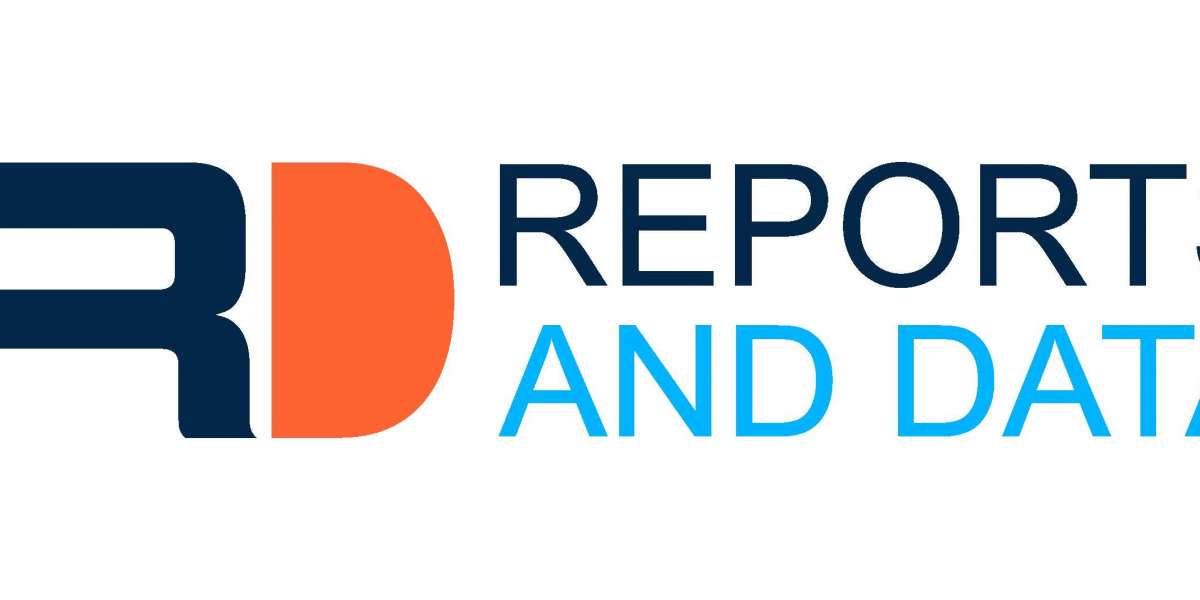The Photoelectric Sensor Market report will provide readers, stakeholders, and businesses with in-depth information about market size, revenue growth, and general industry dynamics in order to help them better position themselves in the global Photoelectric Sensor Market. It offers thorough information on significant considerations, constraints, limitations, and issues in addition to market segmentations based on factors like product type, application, and regional bifurcation.
The global photoelectric sensor market size is expected to reach USD 3.62 billion in 2032 and register a steady revenue CAGR of 7.8% over the forecast period, according to the latest analysis by Emergen Research. Surging adoption of industrial robots in countries across various regions can be attributed to steady revenue growth in the global photoelectric sensor market. Global manufacturing companies are shifting to intelligent factories as a result of technological advancements in industrial IoT, augmented reality (AR), cloud computing, and other areas. These factories enable automation, information, and intelligent industrial output. For instance, industrial robots will be essential to the shift to smart production. A mechanical device that autonomously completes duties is known as an "industrial robot." It can follow instructions from individuals, carry out pre-programmed tasks, or use artificial intelligence (AI). Additionally, it can help the company reduce production costs and improve production efficiency while maintaining product quality. It can also limit the use of human resources, enhance worker safety, and minimize the effects of a severe climate on production. The shift towards the smart factory concept is driving the deployment of industrial robots, and this is also resulting in major and rapid advancements in robotic automation.
Claim Your FREE Sample Copy with Table of content @ https://www.emergenresearch.com/request-sample/1795
Competitive Terrain:
The global Photoelectric Sensor industry is highly consolidated owing to the presence of renowned companies operating across several international and local segments of the market. These players dominate the industry in terms of their strong geographical reach and a large number of production facilities. The companies are intensely competitive against one another and excel in their individual technological capabilities, as well as product development, innovation, and product pricing strategies.
Leading Market Players Profiled in the Report:
Omron Corporation, Keyence Corporation, Sick AG, Schneider Electric, Rockwell Automation, IFM Electronic GmbH, Pepperl+Fuchs Pvt. Ltd., Balluff Automation India Pvt. Ltd., Banner Engineering Corp., Panasonic Holdings Corporation
To access the full coverage of the global Photoelectric Sensor market report, visit @ https://www.emergenresearch.com/industry-report/photoelectric-sensor-market
Some Key Highlights From the Report
- In June 2021, the W4F, the most recent generation of SICK's mini photoelectric sensors, was released. This product line gains various performance benefits from a new ASIC platform. These sensors, for instance, are extremely reliable in detecting objects that are flat, transparent, jet black, or highly reflective. In order to detect process faults, the W4F can also offer distance information, such as the height of objects. The photoelectric sensors offer the finest ambient light and sunshine suppression on the market, as well as the greatest immunity to all known sources of optical interference, according to early users. Configuring and monitoring the sensors is now simpler, thanks to the Blue Pilot operating concept and the cutting-edge monitoring options, saving time during commissioning.
- Retroreflective photoelectric sensors segment is expected to lead in terms of revenue share in the global market over the forecast period. A photoelectric sensor, called a retro-reflective sensor, detects objects when a light beam that has been reflected is interrupted. Both varieties of sensors include a light beam emitter and detector/receiver element in their design. The light beam that was emitted is returned to the sensor by a retroreflector. When something is put in between the sensor and the reflector, the beam is broken. When the light beam is absent, the sensor's output signal is changed. A reflector put on the side of the enclosure opposite from where the emitter and receiver are located is frequently used to reflect the light from the emitter back to the receiver. When the light is interrupted by the detecting equipment, less light is obtained. The object is found using this decrease in light intensity.
- Digital segment is expected to lead in terms of revenue share in the global market over the forecast period. A sensor is digital if its output only has two states: on and off. One having digital outputs is the most typical type of sensor used in manufacturing and automation. Digital sensors use a simple on/off switch as its output circuit. The most widely used sensors in production are inductive proximity sensors having Normally Open digital outputs. Both the sensor and the wire connecting it to the PLC are referred to in this phrase. Some vision systems can generate a digital output if the camera detects a particular object in the image. When the pressure rises, many time-of-flight sensors, pressure sensors, and other equipment begin to generate digital outputs.
- Automotive transportation segment is expected to lead in terms of revenue share in the global market over the forecast period. The assembly line for the body of an automobile must be reliable and consistent with each component moving down it. To ensure that there are no errors made during welding or other processes, each component must stop precisely on time in front of the right station. Photoelectric sensors detect the proximity of the relevant station and can stop the line and process the component. Photoelectric sensors employed in the automobile sector can deliver accurate readings, even when placed close to a variety of items with glossy surfaces, owing to their excellent accuracy.
- Market in Asia Pacific is expected to account for largest revenue share during the forecast period, which is attributed to increasing activities by key market players in countries in the region. For instance, Japanese company, Omron Automation, has developed the E3AS-HL Series, which is a new Complementary Metal Oxide Semiconductor (CMOS) photoelectric sensor family. This product line was developed in order to provide reliable object detection, low maintenance, and greater flexibility. The purpose of this effort was to assist manufacturers in overcoming sensing challenges on flexible manufacturing lines in order to increase the variety of applications for photoelectric sensors.
Key market aspects studied in the report:
Market Scope: The report explains the scope of various commercial possibilities in the global Photoelectric Sensor market over the upcoming years. The estimated revenue build-up over the forecast years has been included in the report. The report analyzes the key market segments and sub-segments and provides deep insights into the market to assist readers with the formulation of lucrative strategies for business expansion.
Competitive Outlook: The leading companies operating in the Photoelectric Sensor market have been enumerated in this report. This section of the report lays emphasis on the geographical reach and production facilities of these companies. To get ahead of their rivals, the leading players are focusing more on offering products at competitive prices, according to our analysts.
Report Objective: The primary objective of this report is to provide the manufacturers, distributors, suppliers, and buyers engaged in this sector with access to a deeper and improved understanding of the global Photoelectric Sensor market.
To seek a discount on this report, click on the link: @ https://www.emergenresearch.com/request-discount/1795
Market Overview:
The report bifurcates the Photoelectric Sensor market on the basis of different product types, applications, end-user industries, and key regions of the world where the market has already established its presence. The report accurately offers insights into the supply-demand ratio and production and consumption volume of each segment.
Segments Covered in this report are:
- Type Outlook (Revenue, USD Billion; 2019–2032)
- Through-Beam Photoelectric Sensors
- Retroreflective Photoelectric Sensors
- Reflective Photoelectric Sensors
- Range Outlook (Revenue, USD Billion; 2019–2032)
- 100 MM
- 100 to 1,000 MM
- 1,000 to 10,000 MM
- 10,000 MM
- Structure Outlook (Revenue, USD Billion; 2019–2032)
- Built-In Amplifier
- Built-In Power Supply
- Separate Amplifier
- Fiber Type
Regional Outlook:
- North America (the U.S., Canada, Mexico)
- Europe (the U.K., Germany, France, Italy)
- Asia Pacific (India, China, Japan, Korea)
- Latin America (Brazil, Argentina, Ecuador, Chile)
- Middle East Africa (Egypt, Turkey, Saudi Arabia, Iran)
Key reasons to buy the Global Photoelectric Sensor Market report:
- The latest report comprehensively studies the global Photoelectric Sensor market size and provides useful inference on numerous aspects of the market, such as the current business trends, market share, product offerings, and product share.
- The report offers an insightful analysis of the regional outlook of the market.
- It offers a detailed account of the end-use applications of the products services offered by this industry.
- The report holistically covers the latest developments taking place in this industry. Therefore, it lists the most effective business strategies implemented by the market rivals for ideal business expansion.
Request customization of this report @ https://www.emergenresearch.com/request-for-customization/1795
Thank you for reading our report. For further details or to inquire about customization, please let us know and we will offer you the report as per your needs.
Latest Photoelectric Sensor Published by Emergen Research:
smart lighting market
https://www.emergenresearch.com/industry-report/smart-lighting-market
airborne intelligence surveillance and reconnaissance market
blockchain in automotive and aerospace and aviation market
animal ultrasound market
https://www.emergenresearch.com/industry-report/animal-ultrasound-market
light emitting diode lighting driver market
https://www.emergenresearch.com/industry-report/light-emitting-diode-lighting-driver-market
nano satellite market
https://www.emergenresearch.com/industry-report/nano-satellite-market
aerospace 3d printing market
https://www.emergenresearch.com/industry-report/aerospace-3d-printing-market
augmented reality market
https://www.emergenresearch.com/industry-report/augmented-reality-market
zero emission aircraft engines market
https://www.emergenresearch.com/industry-report/zero-emission-aircraft-engines-market
network automation market
https://www.emergenresearch.com/industry-report/network-automation-market
About Us:
Emergen Research is a market research and consulting company that provides syndicated research reports, customized research reports, and consulting services. Our solutions purely focus on your purpose to locate, target, and analyse consumer behavior shifts across demographics, across industries, and help clients make smarter business decisions. We offer market intelligence studies ensuring relevant and fact-based research across multiple industries, including Healthcare, Touch Points, Chemicals, Types, and Energy. We consistently update our research offerings to ensure our clients are aware of the latest trends existent in the market. Emergen Research has a strong base of experienced analysts from varied areas of expertise. Our industry experience and ability to develop a concrete solution to any research problems provides our clients with the ability to secure an edge over their respective competitors.
Contact Us:
Eric Lee
Corporate Sales Specialist
Emergen Research | Web: www.emergenresearch.com
Direct Line: +1 (604) 757-9756
E-mail: sales@emergenresearch.com
Visit for More Insights: https://www.emergenresearch.com/insights
Explore Our Custom Intelligence services | Growth Consulting Services
Latest Report: ultraviolet led market, biometrics market
Trending Title: human centric lighting market, speaker driver market








